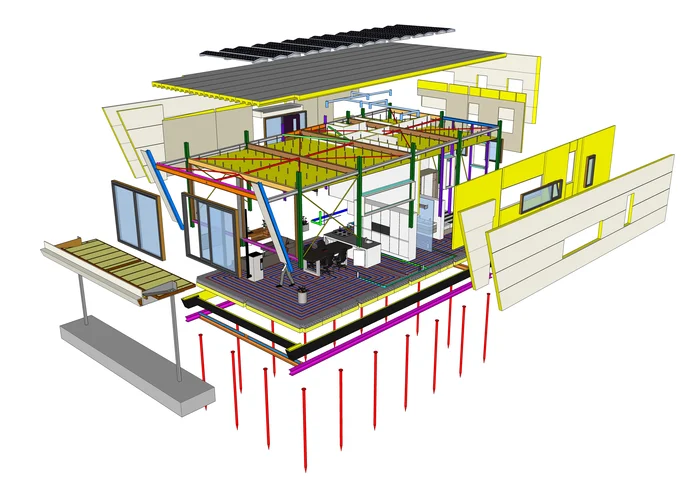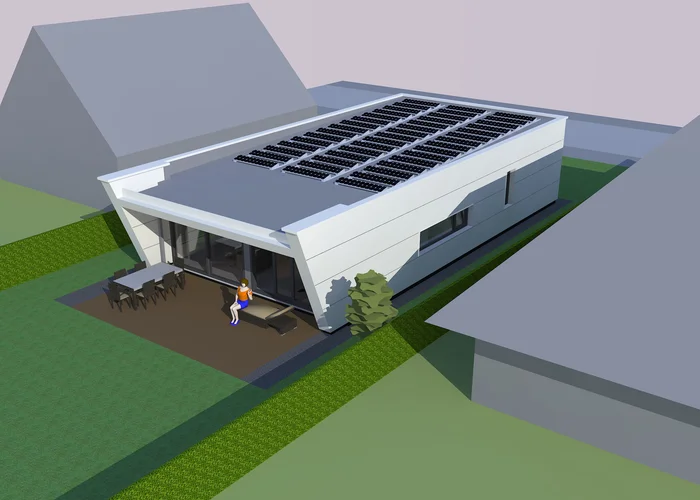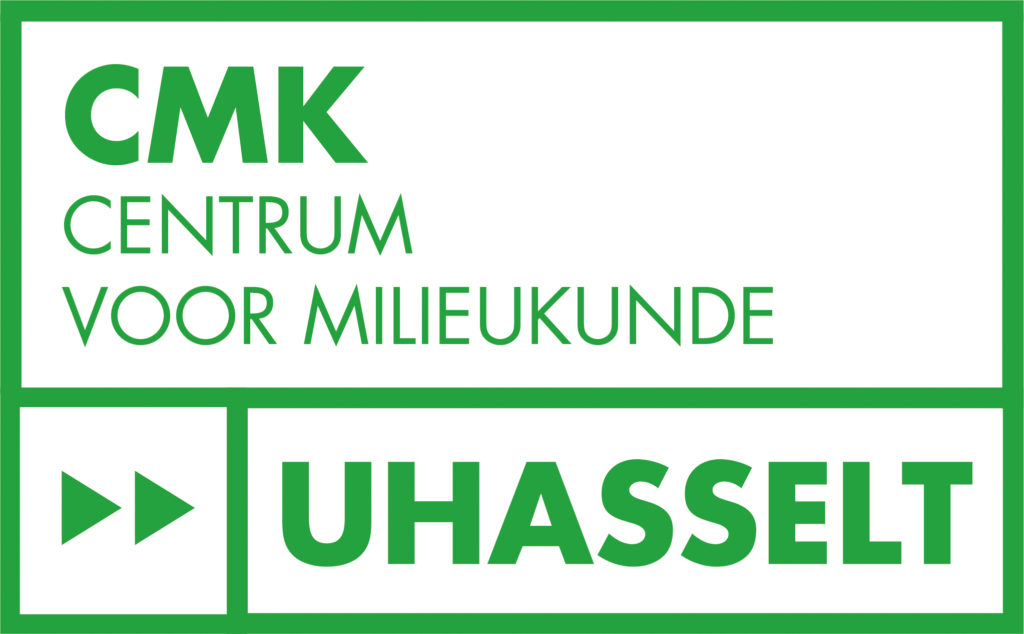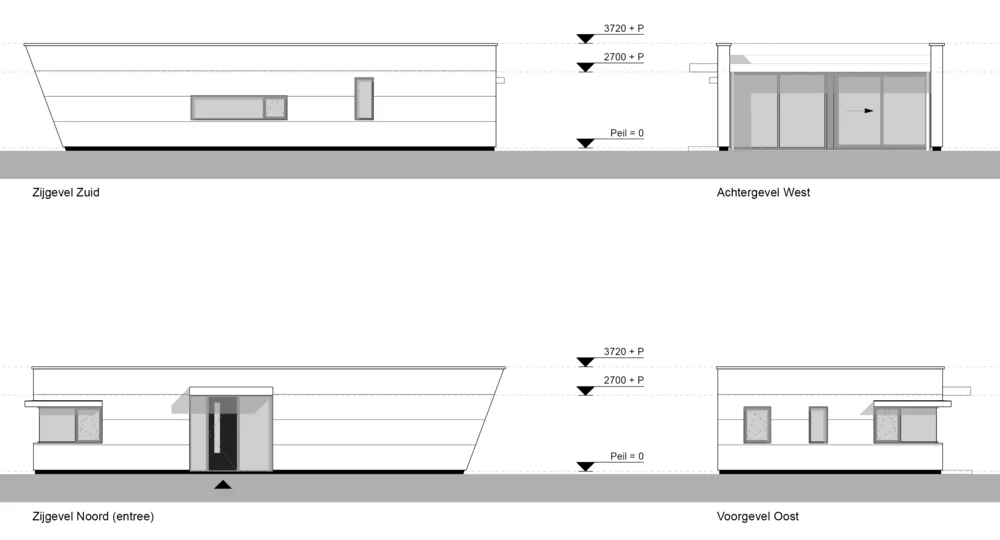Maandag t/m vrijdag open van 10:00 - 17:00 uur | Inventa Advies | (06) 43 69 18 72 / inventa.advies@gmail.com
Johan Cruijf: "Je gaat het pas zien als je het doorhebt"
Project als case studie in publicatie onderzoek door promovendi
Haitham: "Excellent data is provided"
The case study of interest in this research is a 150 m singlefamily house built in 2018, shown in Fig. 9. It is situated in the Netherlands and is characterized as a zero-energy building (ZEB). This case study has been selected for a variety of reasons, primarily its design, construction method, and environmental impact. The paper is available in open access here: klik hier voor de publicatie.



Design for disassembly (DfD)
PhD Researcher Haitham Abu Ghaida of the Centre for Environmental Sciences (CMK) @Hasselt University has published his first research paper titled “Accounting for product recovery potential in building life cycle assessments: a disassembly network-based approach” in the International Journal of Life Cycle Assessment.
When accounting for end-of-life recovery benefits, a zero-energy building design incorporating some DfD principles demonstrated up to 45.94% lower embodied GHG emissions than the ZEB design with low disassembly potential when assuming that recovered products will be reused.
BUILDING COMPONENTS AND BUILDINGS
Published: 15 May 2024
Volume 29, pages 1151–1176, (2024)
PhD in Environmental Economics, Ongoing
Haitham Abu Ghaida: PhD student Hasselt University
Haitham is a PhD student on a H2020 Marie Curie fellowship. Holding a master’s degree in Civil and architectural engineering and a bachelor’s degree in Civil Engineering. Specialized in sustainable construction, tool development, BIM, Life cycle assessment, and life cycle costing on building level. Has extensive experience in developing software mainly with python, including python backend webapps using the Django framework. Other experience includes working with Revit api using C#. Microcontroller software with C++, and linux. klik hier voor zijn website.
